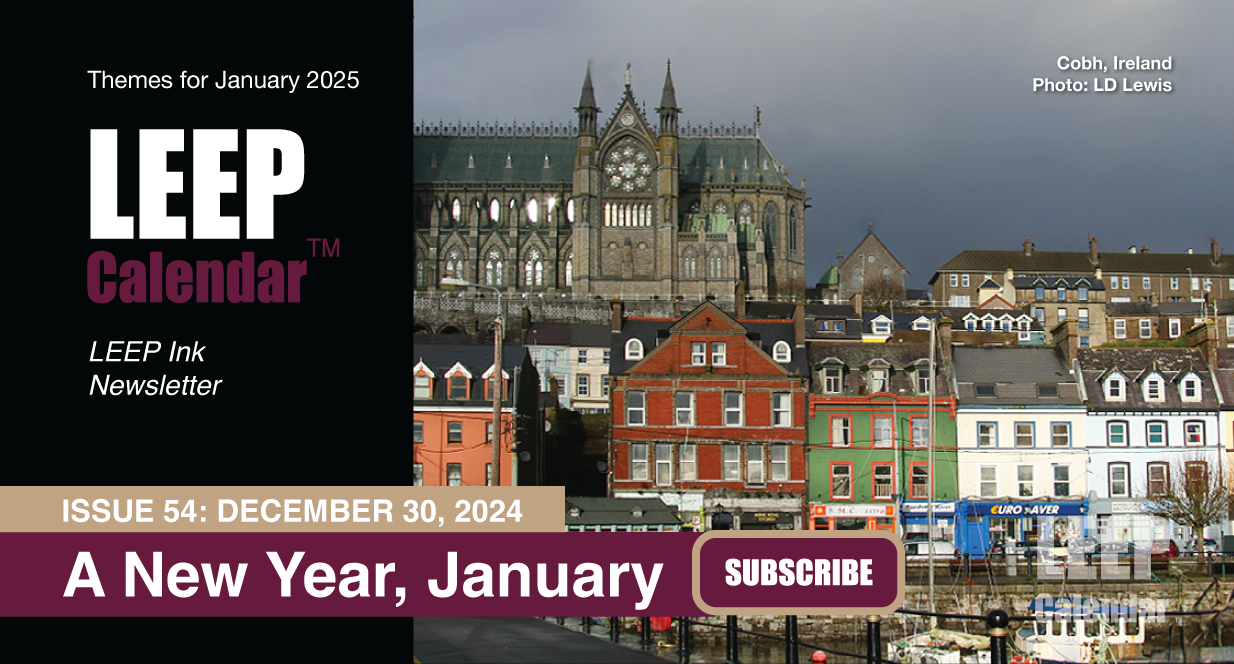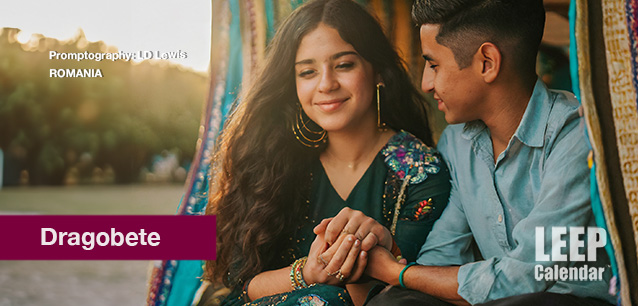 AD
AD
Today is: January 09
Scroll to explore events active on this date.
Additional Events on LEEP
LEEP INK FEATURES

Part II
There are several unique focuses for 2025. I covered the first 12 in Part One. The following are the rest I have discovered for this year. As with all issues of LEEP Ink, the following descriptions are a...

January—It is a New Year!
We've arrived at another new year; the older I get, the more frequently they come. When I was younger, years seemed to take a long time to pass. Now, they're just a blip—here and gone. For ma...

2025 is the Year of...
21 Themes and 'Year of' Events for 2025 PART ONE, THE FIRST 12 Every year, various organizations announce the theme for the year. These themes can focus on causes, such as aesthetics and color tre...
About Romania's Dragobete
Ends: Feb 24, 2025
DESCRIPTION:
Dragobete, a traditional Romanian holiday, celebrates love and spring's arrival, much like Valentine's Day in other cultures. Held annually on February 24, Dragobete nestles happily in Romanian folklore and is named for the mythical, youthful, and joyous god of love.
This holiday's origins trace back to ancient Dacian traditions. Legend says Dragobete is the son of Baba Dochia, a figure marking the transition from winter to spring. Dragobete signifies romantic love and the rebirth of nature, aligning with the early signs of spring in Romania.
Traditionally, Dragobete was a day when young men and women would dress in their best clothes and gather in the forest to collect early spring flowers. They would then sing and dance, celebrating the end of the harsh winter. It was common for romantic relationships to begin on this day. Romanians believed participation in Dragobete customs ensured happiness and love for the entire year or protection from illness for the rest of the year. Single women hoping to marry in the year ahead sought to encounter a man on Dragobete to ensure good luck in love throughout the year.
Dragobete is still celebrated in modern Romania, though some traditional customs have evolved. Today, it is common for people to express love and affection for their partners, family, and friends through gifts, messages, and special activities. The holiday also serves as a reminder of Romania's rich cultural heritage, bridging ancient traditions with contemporary practices.
Despite the influence of Valentine's Day in contemporary Romanian culture, Dragobete remains an anticipated and distinct symbol of love and spring's renewal. This celebration is a testament to Romania's cultural identity, blending historical folklore with modern expressions of affection and community.
VIDEOS
SUPPORTING DOCUMENTS
Currently, this event does not have supporting documents.
ADDITIONAL IMAGES
Currently, this event does not have supporting images.
Where would you like to go now?
 AD
AD


/footer-logo.svg)
